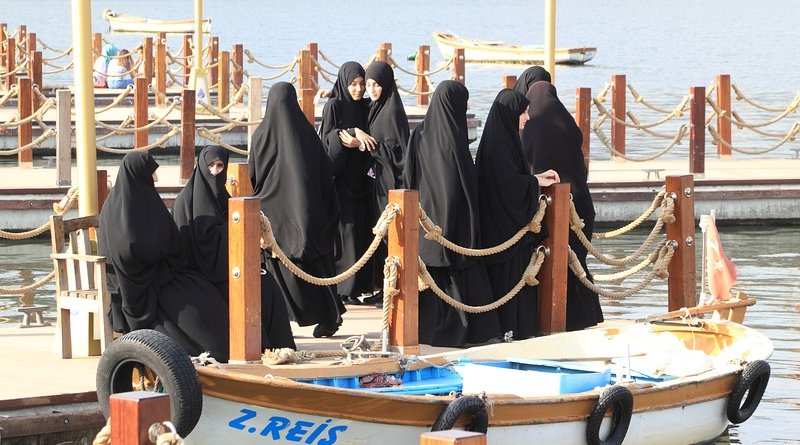Turkey: UN Review Should Address Sharp Decline On Rights, Says HRW
A review of the situation in Turkey before the United Nations offers a chance to acknowledge and address the country’s human rights crisis and the dramatic erosion of its rule of law framework, Human Rights Watch said. On January 28, 2020, Turkey will undergo its third Universal Periodic Review (UPR) before the UN Human Rights Council in Geneva.
Over the past four years, the Turkish authorities have detained and prosecuted perceived government opponents, journalists, activists, and human rights defenders on broad and vague terrorism and other charges for peacefully exercising their freedom of expression and other non-violent activities. The rights to assembly and association have been severely curtailed across the country and the government has exerted heavy political control over the courts, whose judges have all too easily handed down convictions and harsh sentences in defiance of human rights norms.
“The huge number of journalists, politicians, and perceived government critics in prison and on trial flies in the face of the Turkish government’s public statements about the state of human rights in the country” said Hugh Williamson, Europe and Central Asia director at Human Rights Watch. “Countries at the UN review should urgently press Turkey to address the sharp decline in respect for fundamental rights and freedoms and to carry out real reform.”
In July 2016, Turkey experienced a violent coup attempt in which 250 people died. President Recep Tayyip Erdogan and his government have justified many of the repressive measures taken since then as a legitimate response to the coup. While the government should bring those responsible for the failed coup to justice, the broad crackdown on critics and opponents perverts rather than serves that aim, Human Rights Watch said. In the post-coup period, President Erdogan has assumed greater powers with the introduction of a presidential system that removes checks and balances and brings the judiciary under executive control.
The future of more than 130,000 public officials dismissed by decree after the coup attempt for alleged terror links also remains unclear. A commission to assess their cases has so far rejected the majority of applications to be reinstated. With no effective remedy available, many have been left unable to work, travel, or access basic public services. In the country’s southeast, following the March 31, 2019 local elections, the Turkish government promptly removed democratically elected mayors from the Peoples’ Democratic Party (HDP) on bogus terrorism charges.
A failure to investigate persistent and credible reports of torture and ill-treatment in police custody have blighted the earlier progress Turkey made in curbing such abuses. Failure to investigate abductions and enforced disappearances of men with alleged links to the Fethullah Gülen movement, which Turkey deems a terrorist organization responsible for the 2016 coup attempt, is another development causing concern.
Turkey has generously hosted more than 3.7 million Syrian refugees who have fled war. While sheltering far greater numbers of refugees than other European countries, Turkey should end the recent practice of detaining hundreds of Syrians, coercing them into signing “voluntary return” forms, and then forcibly returning them to Syria, and not blight its record.
Governors in major cities have used their powers to silence dissent by banning demonstrations on groundless security concerns. Courts ordered lengthy pretrial detentions for political and civic figures such as Selahattin Demirtas, Figen Yuksekdag, and Osman Kavala. An Istanbul court convicted the Istanbul chair of the Republican People’s Party (CHP), Canan Kaftancıoğlu, on charges including insulting the president and sentenced her to nine years and eight months in prison for social media posts dating from 2012 to 2017. The conviction is under appeal but, if upheld, could result in her being barred from political activity and sent to prison.
Ahmet Altan, one of the many incarcerated journalists, remains in prison for coup-related charges based on articles he wrote, while many other journalists also face prosecution for their journalistic activities. Turkish courts have sentenced thousands of citizens to either fines or even prison time for social media postings criticizing President Erdogan and his ruling Justice and Development Party (AKP).
UN member states participating in Turkey’s UPR review should urge President Erdogan’s administration to:
- End the arbitrary and prolonged detention of activists, politicians, human rights defenders, journalists, and writers, and prosecutions based on their non-violent activities instead of credible evidence of criminal activities
- Ensure an impartial judiciary, remove political pressure on judges and prosecutors, and put laws in place that protect human rights
- End the use of blanket bans to impose arbitrary and disproportionate restrictions on the right to peaceful assembly
- Carry out the European Court of Human Rights’ rulings that Kavala and Demirtas should be immediately released from their prolonged and arbitrary detention
- Review all articles of the Turkish Penal Code, the Anti-Terror Law, and other laws that are used to restrict the rights to freedom of expression, association, and assembly, and the right to access to information, with a view to repealing or amending them to comply with international human rights standards
“Turkey’s disregard of human rights is a disservice to its citizens, who deserve to live with dignity and freedom,” Williamson said.

